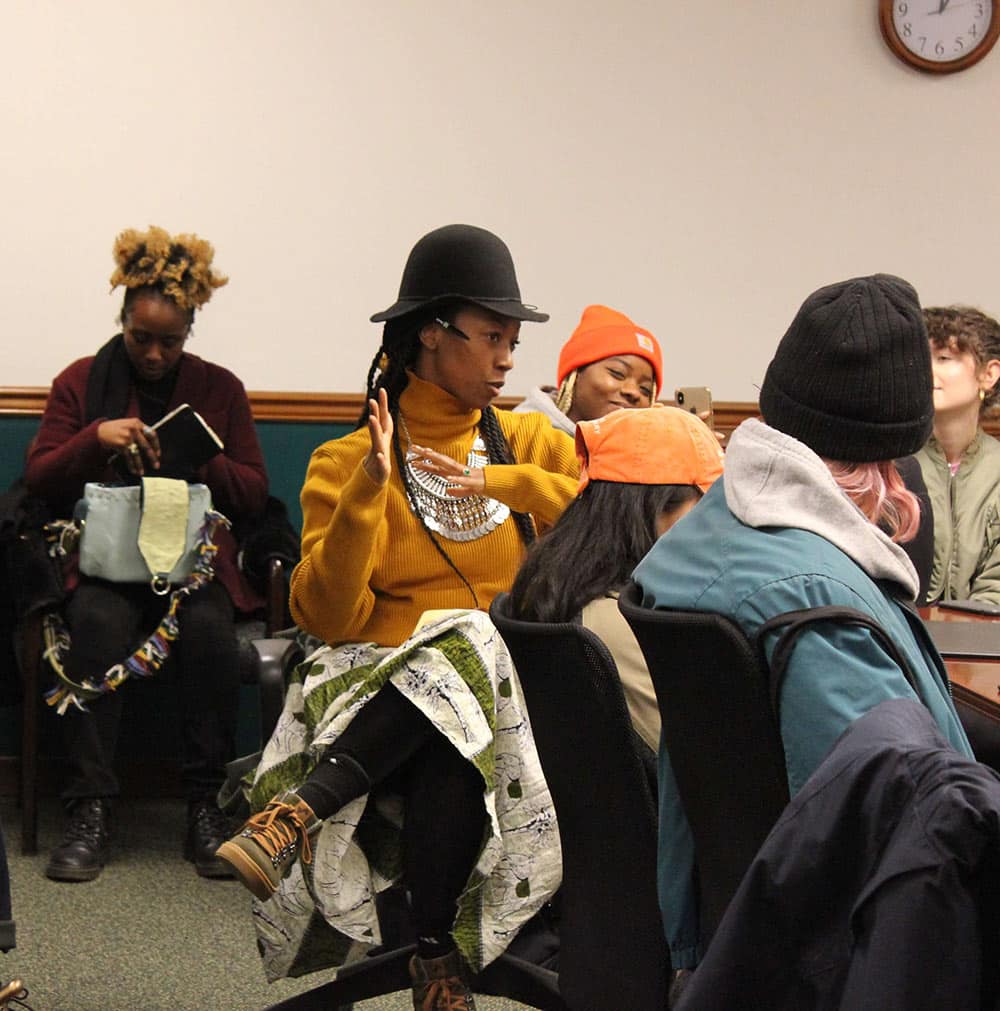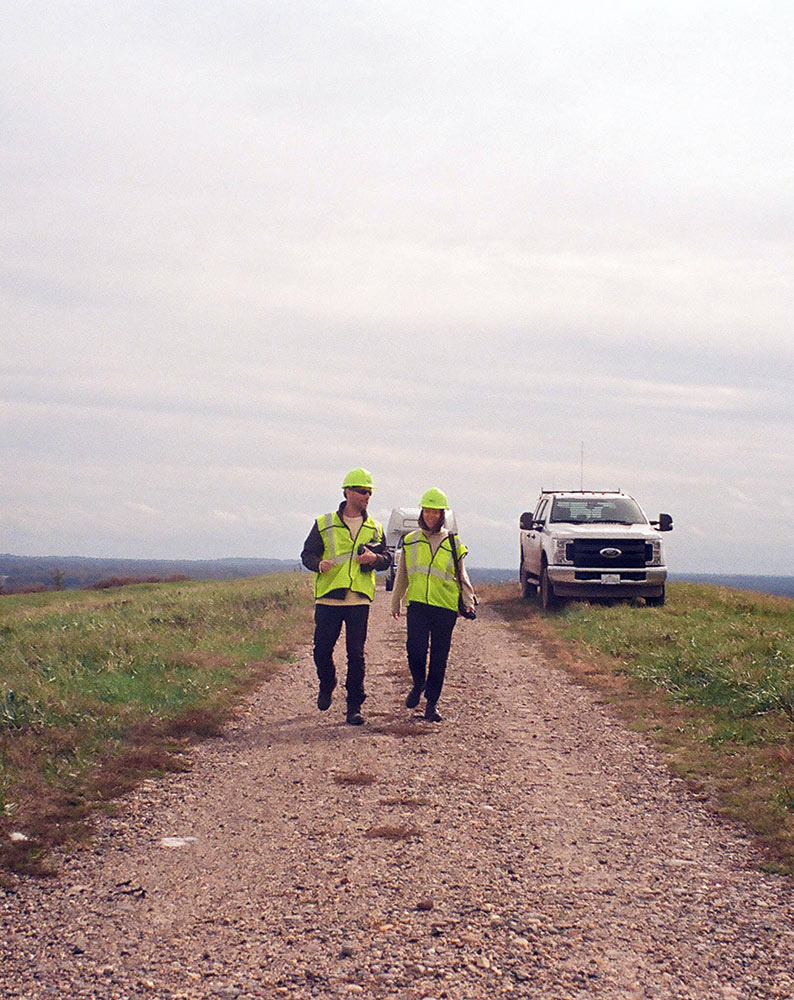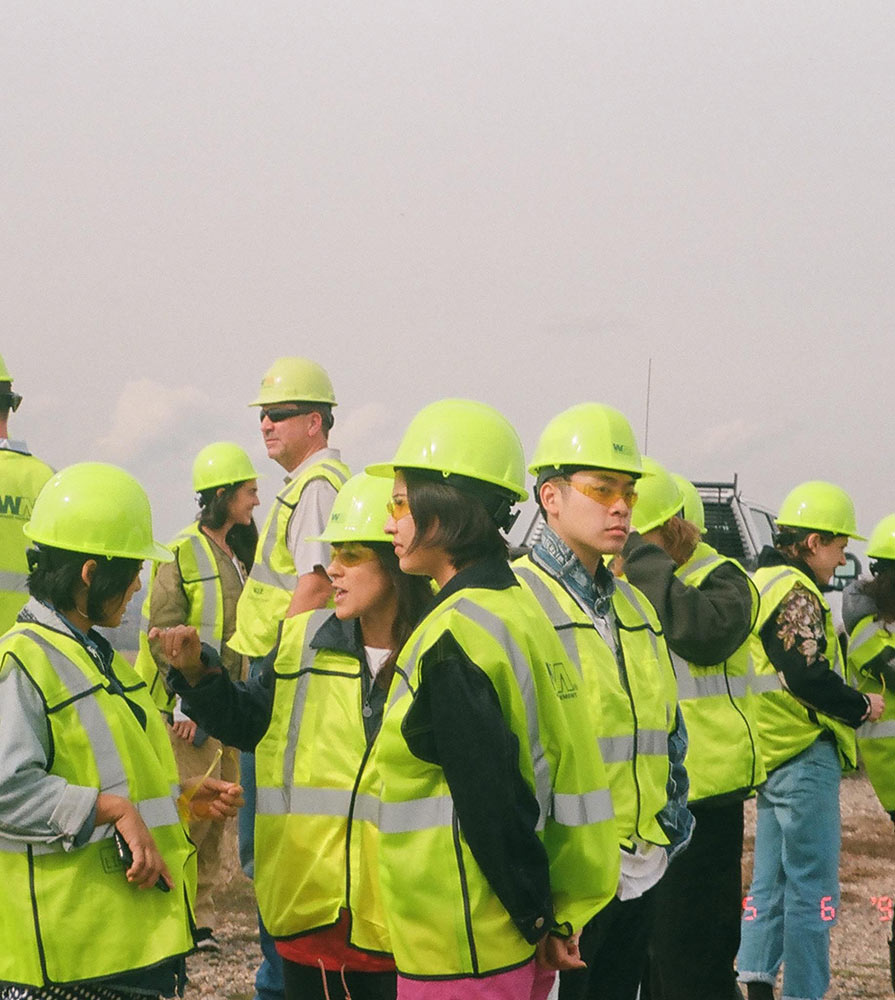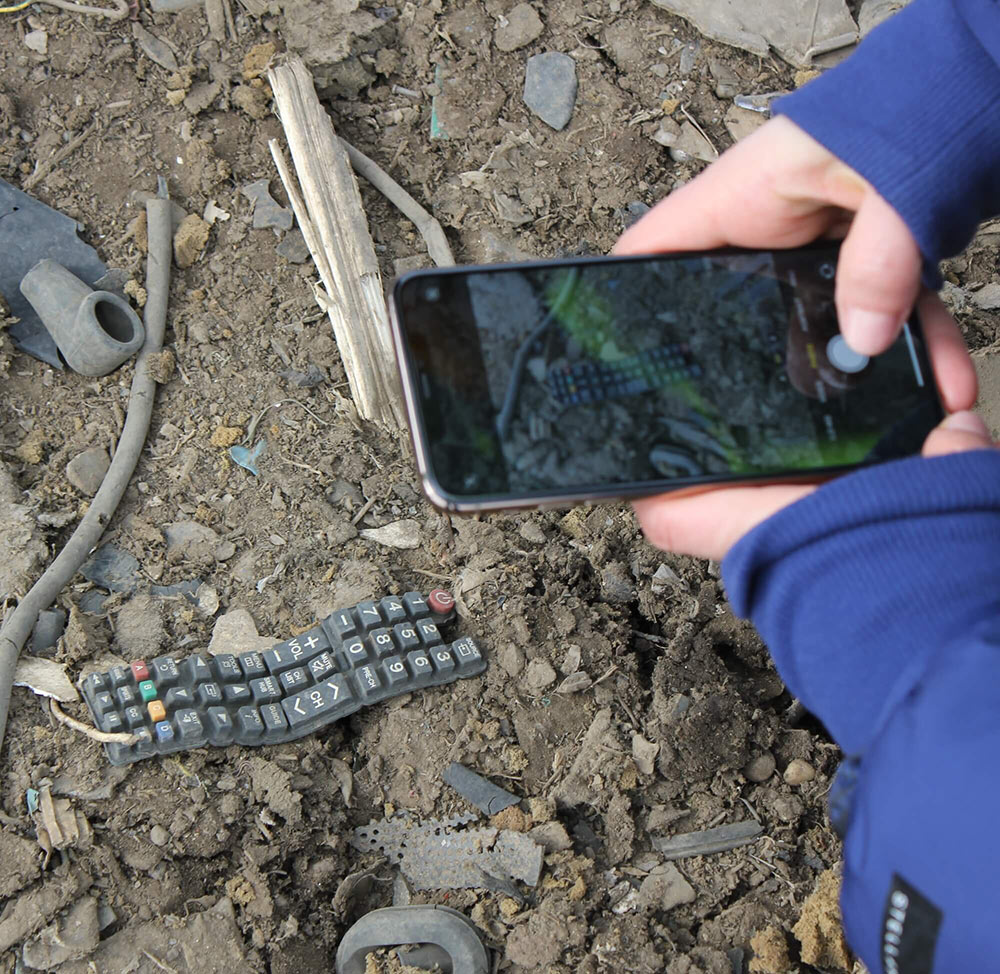USA (New York)
“Slow Factory is infiltrating, challenging and enhancing traditional disciplinary education.”
Access to good education is vital for a healthy society, even more so in these turbulent times that require great mental shifts in the way we live and consume. The United Nations Framework Convention on Climate Change(UNFCC), and other international agreements, argue that “Education is an essential element for mounting an adequate global response to climate change.” Here at Atlas of the Future we’re inspired by organisations that are providing open access education and training programmes to face climate change – like Force of Nature that tackles eco-anxiety or YOUTHTOPIA that provides professional development for youth activists.

Slow Factory Institute, Landfill as Museum participants.
Yet how can we support educational programmes and are they reaching everyone and that are not just repeating harmful practices?
The Slow Factory Institute, a climate innovation hub, is one organisation that is asking this question. As co-founder and executive director of Slow Factory Céline Semaan says, “what we are taught at school isn’t expansive information including cultures and important perspectives from the global majority or what we can call BIPOC communities.”
The Slow Factory Institute, working in the intersecting crises of environmental justice and social inequity, addresses this challenge through interdisciplinary collaboration across science, the arts, and business, for systemic and cultural transformation. They are a team of cross-disciplinary researchers, academics, artists, and scientists, who work in the intersection of systemic regenerative design, open education and strategic narrative change.

Slow Factory Institute, Landfill as Museum programme.
From their first anti-colonial inclusive climate conference in the Fashion Industry and the first science incubator in fashion, they now have an enormous range of free open education sessions in topics ranging from Regenerative Economics and Design Thinking to Collective Healing, Systemic Racism and Identity Politics, and Critical Media Studies, to name a few.
As they explain, “Education is an essential element for mounting an adequate global response to climate change,” and they have proven the need of such courses through the more than 28,000 students from 46 countries who have participated. The majority of those involved (from students to collaborators and programme beneficiaries) are from BIPOC and minority ethnic groups, with over 85% self-identifying as women and almost 90% under the age of 31.

Slow Factory Institute, Landfill as Museum programme.
Slow Factory Institute also has more involved, in-person education programmes, such as the “Landfills as Museums”, an immersive educational initiative that takes groups of designers, students and activists to active landfills in the New York City area, where they examine the cultural importance of the site. The programme explores how waste can be incorporated into the product design process in order to build sustainable circular systems.
As Semaan explains, “Students that are enrolling in design programmes in fashion, before they start imagining new products, they have to be able to imagine life cycle assessments from a point of view that is a lived experience.”
Although the students were pleasantly surprised with the environmental activism and efficiency of the landfill, Raymond Randall (Managing Principal, Technology and Innovation at Waste Management) highlights that there are still areas where they need more help, and this is where working with the next generation of designers really benefits. “This is a perfect time to be working with fashion designers and textile designers, to rethink about how garments are being designed so that by the time they get to us we know that there are some other options for them that can extend the life and reduce the environmental impact of that garment.”

Slow Factory Institute, Landfill as Museum programme.
While landfills strive to efficiently manage waste and maximise the re-use of resources, they are still positioned at the end of the production system and they’re not a long-term solution for human waste. As one participant observed, 600 trucks of waste arrived at the site in one day. “We need to observe waste as a new resource,” says Semaan, “and we have to think of waste as an asset.”
Slow Factory wants to empower individuals, companies and governments to adopt bold strategies while reforming existing systems. And this requires bold, systemic and cultural transformation. As Semaan says, “In the next decade we will have to become fluent in reparative design and designing for chaotic events: how do we survive a tsunami, how do we design for irrigation, how do we design for top-soil regeneration, designing for human survival will become the new necessary field of design: ecosystems over aesthetics.”
AtlasAction: If you want to support their open access programmes you can donate to the Slow Factory here. You can also get creative and contribute a song, sign to stop deforestation in the Amazon, or read the latest research on their Slow Journal.
Project leader
Céline Semaan, Colin Vernon and Anja Tyson, Leadership Collective
Support the Atlas
We want the Atlas of the Future media platform and our event to be available to everybody, everywhere for free – always. Fancy helping us spread stories of hope and optimism to create a better tomorrow? For those able, we'd be grateful for any donation.
- Please support the Atlas here
- Thank you!

